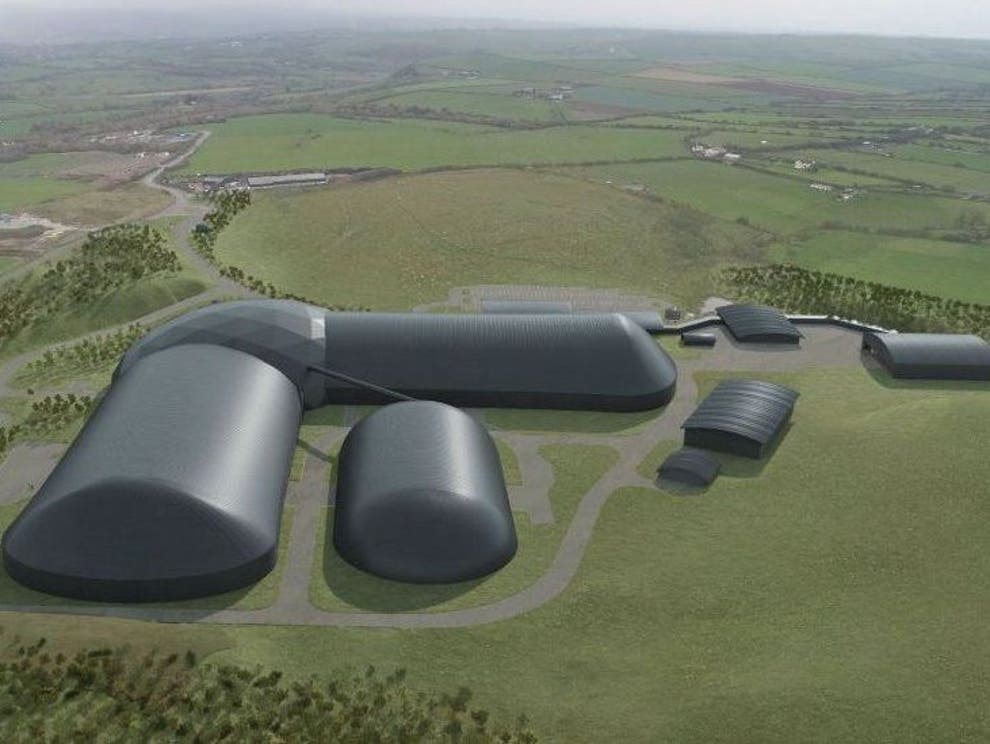Government intervenes in plan for Cumbria coal mine after climate backlash
Exclusive: U-turn by secretary of state Robert Jenrick comes following ‘increasing controversy’ over the project, says a letter seen by The Independent

Your support helps us to tell the story
From reproductive rights to climate change to Big Tech, The Independent is on the ground when the story is developing. Whether it's investigating the financials of Elon Musk's pro-Trump PAC or producing our latest documentary, 'The A Word', which shines a light on the American women fighting for reproductive rights, we know how important it is to parse out the facts from the messaging.
At such a critical moment in US history, we need reporters on the ground. Your donation allows us to keep sending journalists to speak to both sides of the story.
The Independent is trusted by Americans across the entire political spectrum. And unlike many other quality news outlets, we choose not to lock Americans out of our reporting and analysis with paywalls. We believe quality journalism should be available to everyone, paid for by those who can afford it.
Your support makes all the difference.The government is “calling in” a controversial plan for a new deep coal mine in Cumbria, according to a letter seen by The Independent.
Robert Jenrick, the secretary of state for housing, communities and local government, has decided to intervene in plans for the mine following “increased controversy” surrounding the application, the letter says.
The project, which would be the UK’s first deep coal mine in 30 years, has faced opposition from leading climate scientists, activists and politicians since it was first proposed in 2019.
The government has come under fire for refusing to intervene in the plans, which have been approved by Cumbria County Council on three separate occasions. Last month, the council announced that it would review the plans again in light of “new information”.
The letter, from a planning decision officer for the ministry, says that Mr Jenrick plans to hold a public inquiry over the mine, and adds his decision to intervene comes in light of a recent report from the UK’s independent climate advisers.
It says: “The secretary of state has decided to call this application in because of the further developments since his original decision.
“The Climate Change Committee’s recommendations for the sixth carbon budget have been published since he was advised on this decision.
“The secretary of state recognises that proponents and opponents take different positions on that matter, and considers that this should be explored during a public inquiry. Furthermore controversy about the application has increased.”
The proposed mine for near Whitehaven in west Cumbria would produce coking coal for use in steel production.
But the report from the Climate Change Committee (CCC), which was published in December, said that the UK must move away from using coal in steel production within the next few decades if the country is to meet its legal target of reaching net-zero emissions by 2050.
In the report, the CCC advises that there can be no use of coking coal in steel beyond 2035 without “carbon capture technology”, an innovation that is still not available at scale.
And in a letter published in early February, Lord Deben, chairman of the CCC, said the government’s inaction over the proposals gave a “negative impression of the UK’s climate priorities”.
He wrote: “The opening of a new deep coking coal mine in Cumbria will increase global emissions and have an appreciable impact on the UK’s legally binding carbon budgets.”
Reacting to the news, Tim Farron, the former Liberal Democrat leader and the party’s environment spokesperson, said: “It’s fantastic that the government has at long last finally woken up to the fact that this mine would be an almighty backwards step in our fight against climate change.
“In the year that Britain hosts Cop26, it is blindingly obvious that we won’t be taken seriously on the world stage with this coal mine hanging round our neck.
“I hope this public inquiry leads to these plans finally being axed, and the government instead looks at bringing well-paid, long-term, green jobs to Cumbria.”
Shadow business secretary Ed Miliband said that “the saga of this mine is a symptom of a government that isn’t serious about its climate ambitions”.
“After months of pressure, ministers have finally been forced to act,” he said.
“The truth is that this mine is terrible for our fight against climate change, won’t help our steel industry and won’t create secure jobs.
“The government must now block the mine and focus instead on real solutions to secure the long-term future of UK steel, and create low-carbon jobs in Cumbria and across the country.”
In defence of its decision not to intervene until now, the government has repeatedly described Cumbria’s planned coal mine as a “local issue” – a term that has been met with derision by environmental campaigners and scientists.
Friends of the Earth climate campaigner Tony Bosworth described the decision as a “startling but very welcome U-turn”.
“A new coal mine in Cumbria would not only wreck our climate, it would also destroy the UK government’s credibility ahead of crucial climate talks in Glasgow later this year,” he said.
“Planning permission must be refused: ending coal use, whether for power generation or for industry, is crucial for facing down the climate emergency.”
The Independent has approached the government for comment.

Join our commenting forum
Join thought-provoking conversations, follow other Independent readers and see their replies
Comments